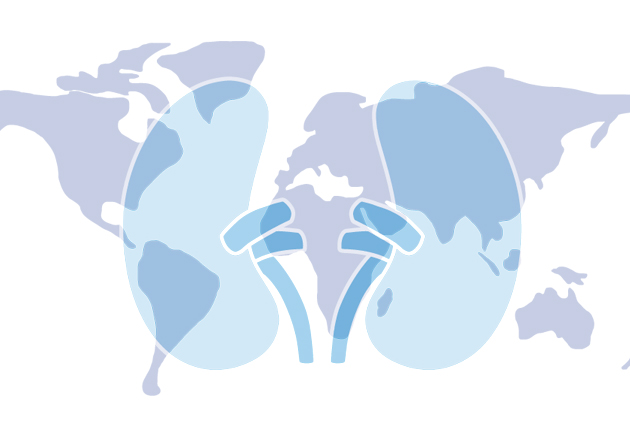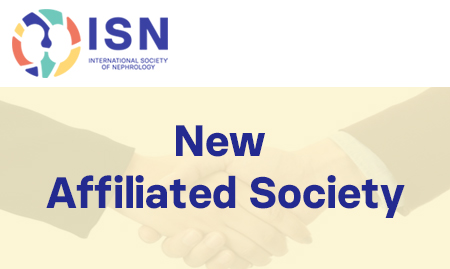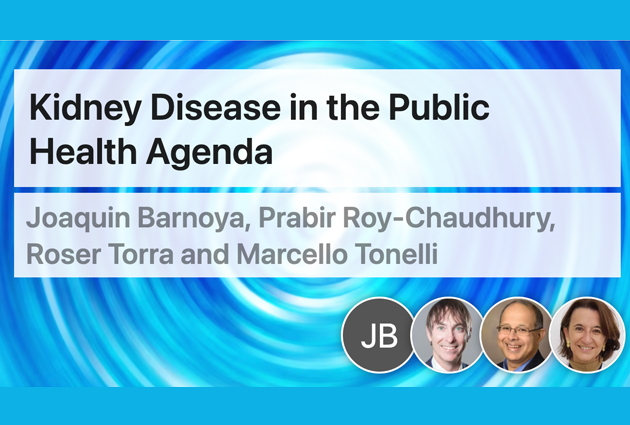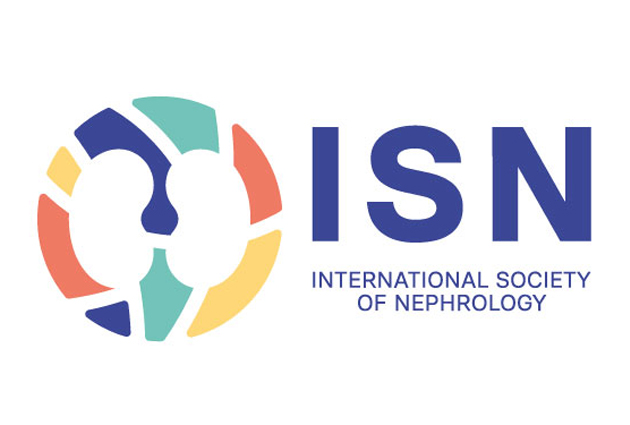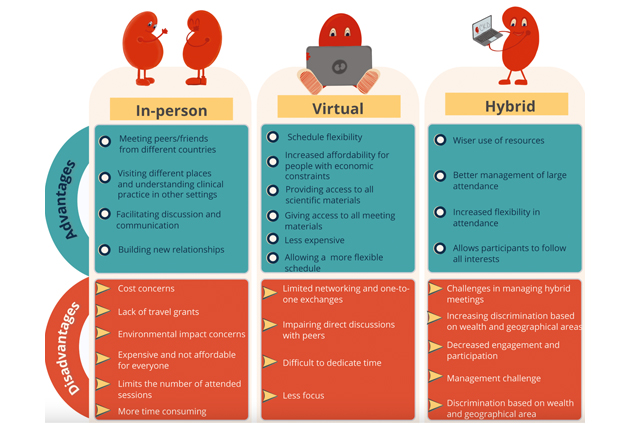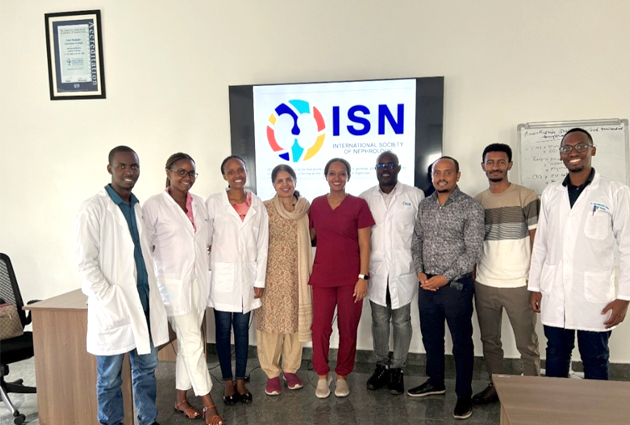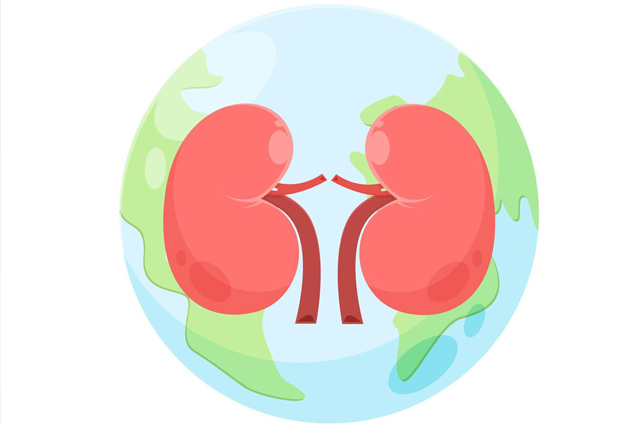ISN Advocacy Newsletter – Bridging the Gaps – April 2021
Bridging the Gaps – Our Quarterly Advocacy Newsletter showcasing the ISN in action: from speaking at the WHO Executive Board, The Global Kidney Policy Forum, WKD 2021 to Securing Priority COVID-19 Vaccines for Dialysis Patients and more
 Welcome, members and allies, to the second edition of Bridging the Gaps, the ISN’s quarterly update on how we’re advocating and collaborating with partners to tackle the global burden of kidney disease.
Welcome, members and allies, to the second edition of Bridging the Gaps, the ISN’s quarterly update on how we’re advocating and collaborating with partners to tackle the global burden of kidney disease.
Sadly, despite about 850 million people worldwide living with some sort of kidney disease and the disproportionate impact of the COVID-19 pandemic on these patients, awareness of the magnitude and the risks of this condition remains low at the population level, with kidney disease often overlooked by health authorities and governments across the world. As this newsletter details, the ISN is working to change this and deliver the necessary policy changes required to reduce the global burden of kidney disease and provide optimal health care for our patients. Whilst a huge amount of work is already being done to tackle this burden, we cannot do this by ourselves.
With the 12 Recommendations to Global Kidney Health guiding our efforts, we look forward to collaborating with you all as we strive for a future where everybody has equitable access to sustainable kidney health.
Best,
![]()
Agnes Fogo
ISN President
In response to the growing prevalence of Chronic Kidney Disease (CKD) globally and the attendant increase – particularly in low-resource settings – of the need for dialysis, we are proud to have launched The ISN Framework for Developing Dialysis Programs in Low-resource Settings.
The Framework, developed alongside the WHO and covered in a Lancet commentary Bringing equity in access to quality dialysis, outlines the requirements and operational considerations for setting up or expanding dialysis programs in resource-constrained settings and is intended as a guide to support WHO member states in developing sustainable strategies for the treatment of patients with kidney failure.
Noting the WHO’s recommendation that “the framework for dialysis…will be a major resource for the management of Chronic Kidney Disease (CKD)” and its “hope that this will be used widely,” ISN Advocacy will be working with partners from across the globe to facilitate its use to decrease the burden of kidney disease.
As part of the Virtual World Congress of Nephrology (VWCN’21), the ISN hosted the Global Kidney Policy Forum: Focus On North America and The Caribbean.
The Forum, based on the 12 recommendations to global kidney health, brought together key decision-makers and stakeholders to address the burden of kidney diseases in the region and discuss policies to improve its prevention and management.
Featuring keynote speeches from Dr Soumya Swaminathan, Chief Scientist at the World Health Organisation, and Sir George Alleyne, Director Emeritus of Pan American Health Organization (PAHO), delegates heard from a range of kidney health professionals and patient representatives on the diverse range of challenges and opportunities facing the region.
With Dr Swaminathan’s recommendation that these can best be met by tackling risk factors head-on and Sir George’s suggestion that the NCD community should be less docile in its advocacy efforts, the ISN will be working with partners in the region to turn the forum’s recommendations into reality and help address the massive variations in the accessibility, affordability, and quality of care throughout the region.
It’s shocking that although between 8 and 10% of the adult population live with some form of kidney damage, and millions die prematurely each year from complications related to kidney disease, “kidneys do not appear to be considered by the public as vital organs that need to be considered and kept healthy.”
To address this gap, the ISN has launched a podcast: A Beginners’ Guide to Kidney Health.
Featuring ISN Council Member Professor Ifeoma Ulasi from Nigeria and recently deceased Professor Donal O’Donoghue from the United Kingdom, the podcast details the vital role that kidneys play in keeping us healthy, the best ways to maintain optimum kidney health, and the most common symptoms of kidney disease.
With the global burden of kidney disease increasing, it provides recommendations on how policymakers across the world can best prevent and manage this growing challenge.
Listen to the podcast here.
With 2021 declared as the year of “Living Well with Kidney Disease,” this year’s World Kidney Day (WKD) campaign focused on increasing education and awareness about effective symptom management and patient empowerment, with the ultimate goal of encouraging life participation.
Reaching a global audience of over 160 million people and involving over 1100 events worldwide – including this joint IFKF-WKA webinar, the 2021 campaign received celebrity endorsement from both Hollywood (Selena Gomez) and Bollywood (Amitabh Bachchan).
International organizations and media outlets such as the WHO, the Commonwealth Medical Association, and the Financial Times also supported or covered the campaign.
With hopes that the public health situation will have improved sufficiently to allow a return to the traditional live events-based campaign, planning is already underway for 2022.
Given that the world’s ~3 million dialysis patients have a risk of death several-fold greater than the (age-adjusted) general population infected and hospitalized from COVID-19, the ISN wrote to the WHO to highlight their plight and to call for the institutions’ support for priority COVID-19 vaccinations for this group.
Subsequently, and having noted the success of ISN members from Italy, Lebanon, Romania, the United Kingdom, and Uruguay in securing the prioritization of dialysis patients in their respective national vaccination campaigns, representatives from these countries participated in the webinar “Prioritization of Dialysis Patients in National Covid-19 Vaccination Programs – Lessons Learned from Successful Campaigns”.
With the pandemic ongoing, and noting a Kidney International editorial stating, “vaccinating dialysis patients may have the highest relative impact of all health care groups, through reducing infections, mortality, and burden on the health care system,” the ISN and its global partners –
The American Society of Nephrology (ASN) and the European Renal Association-European Dialysis and Transplant Association (ERA-EDTA) – reiterated their commitment “to support efforts to act on the urgent need to prioritize COVID-19 vaccinations for dialysis patients and frontline staff in dialysis units.”
Ahead of the launch of the WHO’s Global Diabetes Compact – a comprehensive and inclusive approach to support countries to implement effective programs for the prevention and management of diabetes – the ISN wrote to over 70 WHO Member States to highlight its support for this initiative and the causal relationship between diabetes and kidney disease.
With up to 40% of adults living with diabetes eventually suffering kidney failure, which in turn has dire consequences for both patients’ health and health systems, the ISN looks forward to working with all relevant stakeholders to tackle the global scourge of diabetes and, by extension, to reduce the global burden of kidney disease.
Noting the detrimental impact of the ongoing civil unrest in Myanmar on the country’s ~2000 dialysis patients, the ISN wrote to the WHO calling for its support in persuading the military regime to minimize disruption to dialysis provision.
Many dialysis units, particularly those in government facilities, cannot function properly because staff and patients are unable to travel safely, and there is a lack of imported consumables.
Tragically, there are likely to be significant numbers of additional hospitalizations or deaths due to these disruptions. The ISN, therefore, requested that the WHO raise this critical human rights issue with its Member States so that they, and the WHO itself, can engage with the Myanmar regime to secure the urgent re-establishment of dialysis services.
Given the impact of socio-economic and environmental factors on the prevalence of Chronic Kidney Disease (CKD) and its co-morbidity with numerous other diseases, the ISN’s Advocacy Team was privileged to speak in support of several related items at the 148th meeting of the WHO’s Executive Board.
Noting CKD’s association with clinical and radiographic changes in the mouth that are detrimental to oral health, we called on Member States and the WHO to recognize the global burden of oral diseases affecting over 3.5 billion people globally, especially those from marginalized communities and lower economic backgrounds.
Having advised delegates that social determinants of health such as gender inequality, poor maternal education, and health and nutrition are prenatal risk factors of Chronic Kidney Disease (CKD), we urged them to prioritize eliminating these health inequities by facilitating access to health services and developing policies to include treatment and care for all people affected by kidney diseases.
Noting that in up to 40% of cases, adults living with diabetes will eventually suffer kidney failure, we were also pleased to submit a joint statement, alongside partners from the Global Coalition for Circulatory Health and the NCD Alliance, in support of the “Draft Decision on Addressing Diabetes as a Public Health Concern” and call for its consideration at the 74th World Health Assembly to be held later this year.
As stated previously, despite approximately 850 million people living with some form of kidney disease and millions dying prematurely of related complications each year, “kidneys do not appear to be considered by the public as vital organs that need to be considered and kept healthy.”
Since this is partly because a person can lose up to 90% of their kidney function before experiencing any symptoms, the ISN launched a global public awareness campaign, “Are your Kidneys Healthy?” to increase awareness of Chronic Kidney Disease (CKD) and its risk factors, as well as activities promoting the early detection of CKD in those at risk of the disease.
The online quiz, available in 11 languages and taking one minute to complete, helps people understand if they are at risk of kidney disease and provides suggestions on what their next steps should be if they are.
Reflecting its role as a global professional association dedicated to advancing kidney health worldwide, the ISN further strengthened its international alliances by joining the Kidney Health Initiative (KHI).
ISN’s Membership with KHI, a public-private partnership between the American Society of Nephrology and the US Food and Drug Administration whose mission is “to catalyze innovation and the development of safe and effective patient-centered therapies for people living with kidney diseases,” will play a key role in ensuring that global efforts to tackle these challenges are effectively aligned.
With circulatory diseases – kidney disease, diabetes, heart disease, and stroke – now the leading cause of death worldwide, coordinated action to reduce risk factors and deliver significant gains in patients’ quality of life and cost savings for society is urgently required.
As the COVID-19 pandemic disproportionately impacts people living with circulatory diseases, placing them at an even higher risk of poor health outcomes, such an approach has become even more vital.
In the face of this health emergency, and working with our partners in the Global Coalition for Circulatory Health (GCCH), the ISN is proud to be part of the campaign, “Circulatory diseases – a growing global problem,” which recommends the need for a strategic global response to provide people living with circulatory diseases with support to access treatment.
The ISN has joined the European Kidney Health Alliance (EKHA), a not-for-profit organization dedicated to developing concrete solutions to the challenges posed by Chronic Kidney Disease (CKD) in Europe.
With its Global Operations Center based in the heart of Brussels’ EU quarter, the ISN is ideally placed to work with EKHA to raise awareness of CKD’s severity and prevalence across Europe and to help direct EU policy and research towards its prevention and management.
Initial engagement with the EU institutions has been highly positive with, for the first time, both the European Commissioner for Health and the EU’s Health Ministry tweeting their support for the 2021 World Kidney Day campaign and the ISN-backed Call to Action on Improving Prevention, Treatment, and Care of Chronic Kidney Diseases in the Aftermath of COVID-19.


